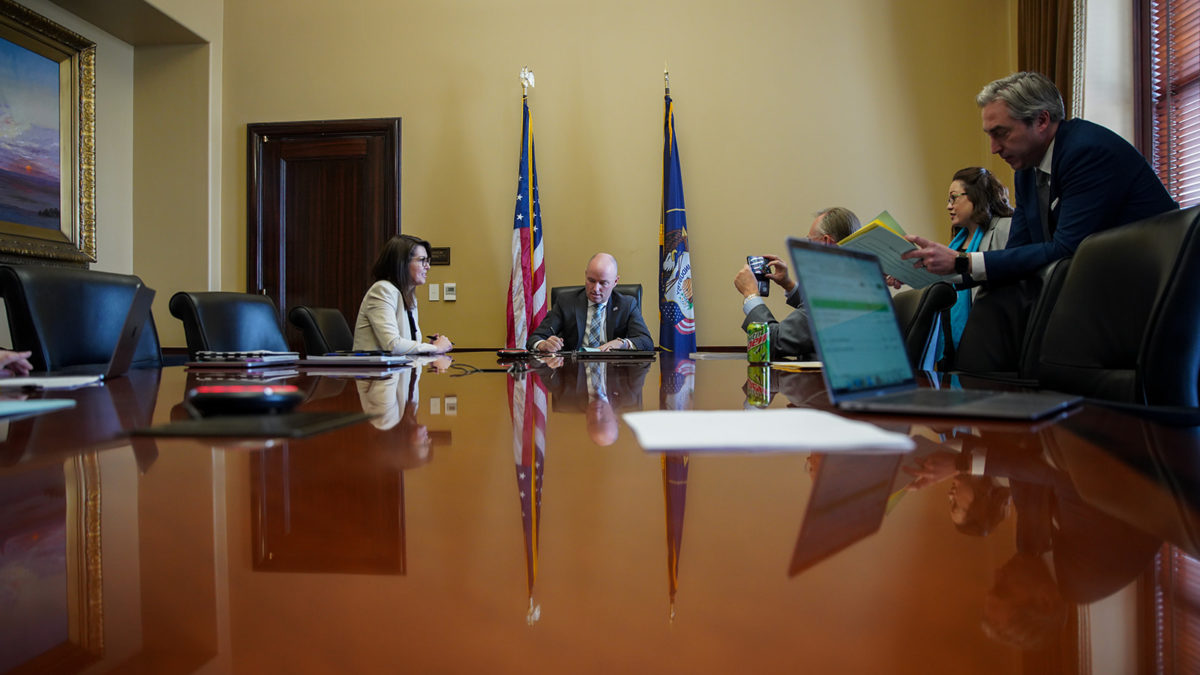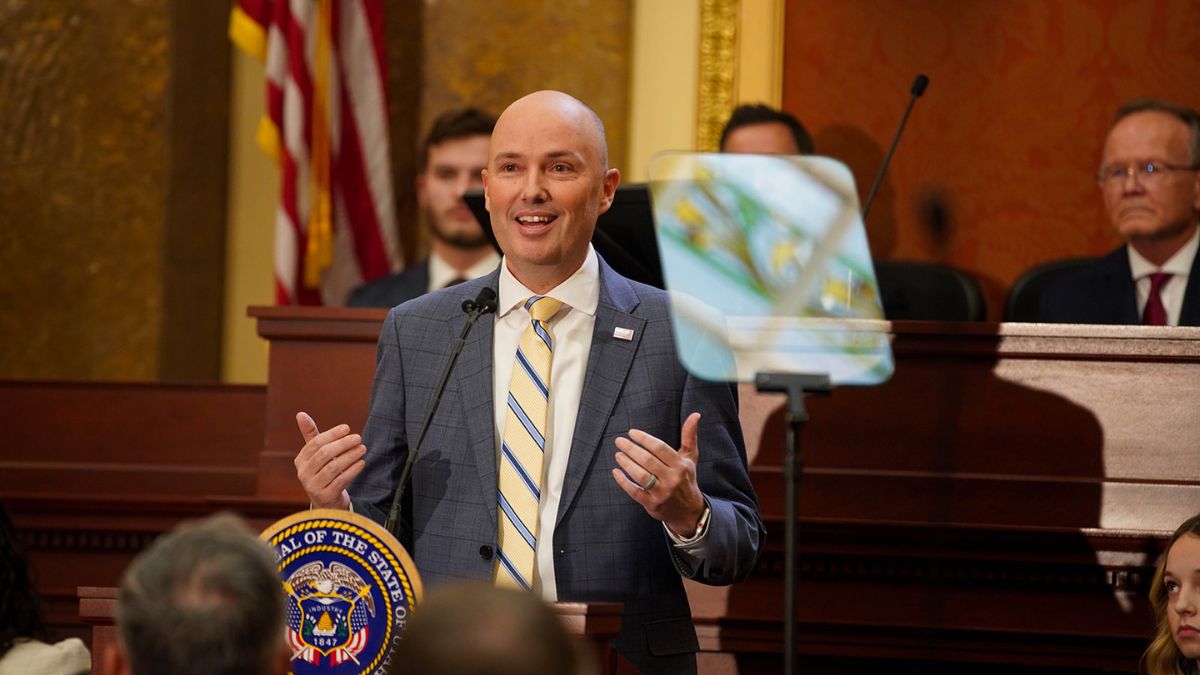Police & Fire
Gov. Cox to sign law keeping some police statements secret

Some police statements made during internal investigations into shootings and other high-profile incidents will no longer be accessible to the public under a law that Utah Gov. Spencer Cox plans to sign. Photo: Gov. Spencer Cox
SALT LAKE CITY — Some police statements made during internal investigations into shootings and other high-profile incidents will no longer be accessible to the public under a law that Utah Republican Gov. Spencer Cox plans to sign.
Cox told The Associated Press on Friday that he will sign a bill that cleared the Legislature with bipartisan support but little public debate on Thursday.
Critics say exempting documents known as “Garrity statements” from public disclosure will erode transparency and potentially shield documents of public interest like an investigation into police handling of a traffic stop in the high-profile Gabby Petito murder case.
Made by police and other public employees during internal investigations, Garrity statements cannot be used during criminal proceedings, but employers can require them to make those statements.
“If you’re compelling someone to give up their Fifth Amendment right or lose their job, then that’s a very sacred protection. And I think it deserves that kind of protection,” Cox said, referring to the constitutional protections that allow people not to make self-incriminating statements under oath in court.
The Utah Media Coalition, which includes The Associated Press, opposed the bill. It was filed after the state records committee allowed the Salt Lake Tribune to access to Garrity statements in connection with police shootings, and some departments went to court to oppose the release.
“This bill will not remove the scrutiny. This bill will increase public distrust of officers if passed because it shrouds the internal investigation under a veil of secrecy,” said Sheryl Worsley, head of podcasts at KSL, during the only public hearing for the bill in February.
Reporter Nate Carlisle with KSTU-Fox 13 said Friday that under the new law, it’s unclear whether he and other reporters could have obtained an independent report that found that Utah police made “several unintentional mistakes” when they stopped Gabby Petito and her boyfriend before she was killed in what became a high-profile missing person case.
Officers investigated a fight between Petito and her boyfriend Brian Laundrie as the two passed through Moab, Utah, on a road trip, but police ultimately allowed the couple to leave after requiring them to spend a night apart.
Petito later disappeared, sparking a search that drew worldwide attention and drawing questions about whether a different police response could have prevented her death.
The report indicates that the officers were given Garrity warnings before they spoke to independent investigators, Carlisle said, raising questions about whether those records could have been kept private under the new law.
The statements are public record in many states, including in Arkansas, where their disclosure has uncovered allegations of racial bias and policy violations by police.
Cox, for his part, said he wasn’t familiar with that Petito report. But he also pointed to the bipartisan, unanimous vote in the Utah Senate as a sign the bill had broad support.



















